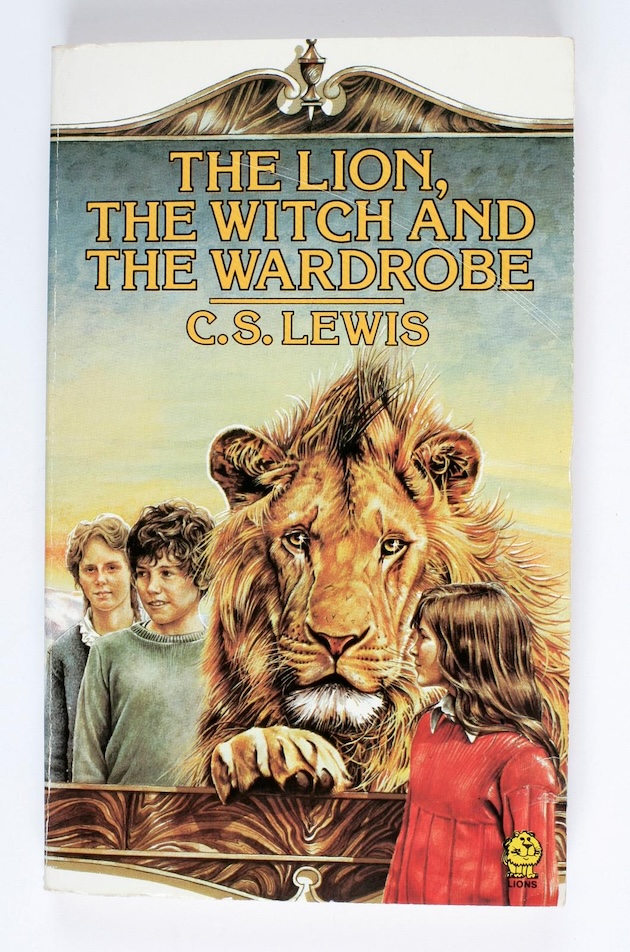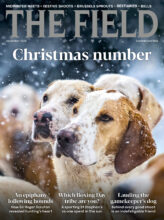Why do some children’s books stand the test of time? And which classic tales will you be sharing with younger generations – or re-reading yourself? Gabriel Stone finds out
Which are the best children’s books of all time? The classics that will be read over and over again, through the generations. These are the stories you may remember as a child, that were passed on by your parents and are likely to be passed onto grandchildren.

A few of the best children’s books of all time (and children’s authors)
- Alice’s Adventures in Wonderland
- The Jungle Book
- The Chronicles of Narnia
- Harry Potter
- The Borrowers
- The Hobbit
- Winnie The Pooh
- Enid Blyton
- Beatrix Potter
- Roald Dahl
- JK Rowling
What was your favourite book as a child? Beneath our deservedly popular literary heritage of Alice’s Adventures In Wonderland or The Jungle Book lies a trove of considerably less famous titles, all loved just as fiercely by their followers. Before long you’ll tumble down a riotous rabbit hole of overlooked delights, such as The Fox’s Frolic by Sir Francis Burnand or, perhaps, The Adventure of Hadrian Hedgehog by Candida Lycett Green.
To re-read these books is the ultimate nostalgic indulgence, the closest we can get to time travel. Familiar words and illustrations unlock forgotten wardrobes in the brain, from which spill the same emotions of awe, reassurance and exhilaration originally felt by our younger selves. Often, too, there are the extra layers of allegory or observation that passed us by all those years ago but make the story resonate so freshly today. After all, as CS Lewis, whose dense theological analogy failed to dent the popularity of The Chronicles of Narnia, observed: “A children’s story that can only be enjoyed by children is not a good children’s story in the slightest.”

Remember Wilbur?
Handing over a favourite tale
When the best children’s books of all time leave such a firm impression on our consciousness, it is hardly surprising that so many people enjoy sharing these tales with a new generation. In a world full of disposable plastic tat, there can be few gifts more pleasurable to select and hand over than a favourite tale from your own childhood. Of course, there’s no need to restrict your recipients to the ungrateful youth; why not mark a significant birthday with a book of matching vintage? Then there’s the friend who recently gave a copy of Roald Dahl’s Revolting Rhymes to both her four-year-old grandson and 93-year-old mother, each responding with equally voluble enthusiasm. Alternatively, many people may decide the only way to ensure such a thoughtful gift sparks appropriate joy in the receiver is to treat themselves.
Propelled by this confluence of sentimental forces, the market for early editions of children’s books is a buoyant one. “It’s a strong market with a lot of appeal because it’s essentially driven by nostalgia, but also these books are so accessible,” explains Christiaan Jonkers, founder of the Henley-on-Thames-based Jonkers Rare Books, which has a strong niche in children’s literature. “Crime And Punishment or Ulysses are fantastic works but they’re not actually read by a great many people compared to Beatrix Potter or Harry Potter,” he continues. “There are a huge number of people who have read these books in childhood and now in adulthood would like a memento that means something to them.”
If your heart is set on a first edition of Winnie-the-Pooh then prepare to dig deep. However, plenty of childhood classics are more accessibly priced. Much of Enid Blyton’s prolific output remains hugely popular but can still be yours for a few hundred pounds and the same is true of The Borrowers by Mary Norton or the wonderfully macabre world of Roald Dahl.
That said, every bookseller can rattle off a personal list of titles that, despite being well written with powerful storytelling, languish inexplicably on the shelf. For John Atkinson, owner of John Atkinson Books in Harrogate, these unfairly unfashionable names range from his own childhood favourite, Bogwoppit, by Ursula Moray Williams, to E Nesbit’s The Phoenix And The Carpet, which he describes as “a really good book, but no one buys it”. Even the magic Disney treatment has failed to catapult that daring mouse adventure, The Rescuers, by Margery Sharp, into the secondary market’s premier league.

Much of Enid Blyton’s prolific output remains hugely popular
The appeal of a rural setting
One element common to so many children’s classic tales that does cross seamlessly down the generations is the appeal of a rural setting. Whether it’s that glorious Lake District backdrop of Swallows And Amazons (Arthur Ransome) or The Children Of The New Forest (Captain Marryat) leafy hideaway full of warrantable stags, the countryside offers fertile ground for adult-free adventure. While younger readers may be quite rightly transfixed by the gleeful misdemeanours of Toad, The Wind In The Willows’ broad, enduring appeal is at least partly rooted in Grahame’s evocatively observed scenes. “On either side of them, as they glided onwards, the rich meadow grass seemed that morning of a freshness and greenness unsurpassable. Never had they noticed the roses so vivid, the willow herb so riotous, the meadow-sweet so odorous and pervading.” The images are realistic; their description dreamlike.
Sometimes, nature takes on a rather darker, more instructive mood. In TH White’s Arthurian tale The Sword in the Stone, Wart swaps his dry, academic timetable for a magical course of life and death lessons from the animal kingdom. Decades later, surely few readers could encounter a pike without recognising that face “ravaged by all the passions of an absolute monarch – by cruelty, sorrow, age, pride, selfishness, loneliness and thoughts too strong for individual brains”.
Slightly Foxed
Book lovers of all ages should also have the name Slightly Foxed on their radar, a charismatically independent publishing house that specialises in shining a light on delightful works that fall outside the hotly marketed bestseller and literary prize lists, or perhaps lie dormant on a larger publisher’s backlist. In 2013, the team added a ‘Cubs’ section to its reissued portfolio, starting with Ronald Welch’s Carey novels, which follow the fortunes of various generations of the fictional Carey family at key moments in history, spanning the Crusades to World War I. As a school master and former Tank Corps officer, Welch embellishes his storytelling with impeccably researched historical detail, whether that’s how to string a longbow or the strategic impact of tanks on World War I.
The same publisher is also responsible for resurrecting three children’s novels by one of England’s great countrymen. Denys Watkins-Pitchford, writing under the pseudonym ‘BB’ after his chosen size of shot for wildfowling, channelled expertise as a conservationist, fieldsports enthusiast and skilled illustrator into creating epic gnome adventures The Little Grey Men and Down The Bright Stream. Meanwhile, in Brendon Chase he indulges the fantasy of a thousand school children with this tale of three brothers who run away to live wild in an 11,000-acre forest, immersing themselves delightfully but pragmatically in the natural world.
“It’s very much what we feel has stood the test of time,” sums up editor Gail Pirkis of the selection criteria behind these reissued titles. Buoyed by the enthusiastic response to Welch’s historical novels, her current focus is on Rosemary Sutcliff, whose seven-volume series takes young readers through life in Roman Britain, as told in The Eagle Of The Ninth, right up to the Norman invasion. “They’re incredibly well plotted and illustrated by some of the greatest artists of the day,” remarks Pirkis, adding piquantly: “They’re probably far better written than many modern books.”
On top of this foundation of powerful storytelling that still feels fresh, Slightly Foxed layers equally irresistible presentation. The latest Sutcliff collection comes in a limited-edition run of 2,000 copies, all cloth-bound, hand-numbered and with illustrated end-papers. “People who buy them love the physicality, as well as the content,” notes Pirkis. So much for the commandment not to judge a book by its cover. Perhaps this is also the moment to take issue with New Testament guidance that “when I became a man I put away childish things”. No one should ever feel too mature to revisit that favourite childhood tome.
This article was originally published in April 2024 and has been updated.





